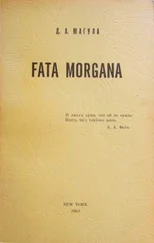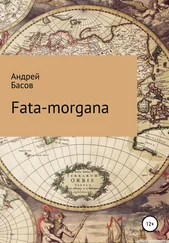Jonathan Littell
The Fata Morgana Books
Down below rise the two towers. They are outlined against a grey sky, mournful from suppressed light. Some trees partly obscure the second one, the one burnt from bottom to top. They stand silent as sentinels, indifferent to everything happening at their feet. The wind rustles the leaves in the trees. Trails of clouds flow lazily across the sky. It’s a summer Sunday. After a while, the sun reaches the balcony and warms face and legs. Then for a few hours you take refuge in the dark, cool interior of the apartment.
Opposite, to the left, slanting up the hill, lie the little white patches of the gravestones, a streak scattered between the houses. Above the cemetery stands a handsome dwelling, a large nineteenth century house with imposing wings and columns flanking the main door. Perhaps it was the access to the cemetery. It’s difficult to know, as no one can go up there. At night, near that house, there is a light like a fiery gap in the darkness. Again, no one knows who put it there. There are people who must know, but I don’t know those people.
Once, I visited a house not too far from that cemetery. It was also on a Sunday, around midday. B. had brought me there, to deliver a package to the residents. We had lingered on the terrace for half an hour, drinking beer with the father, while the daughter cut roses in the garden for B. We were sitting back a little, because the edge of the terrace was exposed. The town stretched out under our feet, with the two towers facing us for once, beneath a blue summer sky veering to white. A few shells were falling somewhere near the General’s Residence. We were, the father told me, a mere hundred and fifty meters from the cemetery; I found this information astonishing. Yesterday, he continued, a woman had been killed just below his house, by a shell. The day before had in fact been a very bad day, many people had been killed. But that Sunday I didn’t yet know how bad the previous day had been. It was such a beautiful weekend. On Saturday, I was having lunch in a café when the General’s Residence had been attacked a first time. A piece of shrapnel had bounced in front of my table, with a little clink, and I had run over to pick it up; I came back into the café laughing, tossing the still burning shard from hand to hand, like a roast potato fresh from the oven. Later on, toward the end of the afternoon, I went to some friends’ house for cocktails. We were drinking in the garden when rockets came screaming overhead. Several of my friends dove for cover and huddled in a ball at the foot of the rosebushes. It was very funny and we had laughed a lot. The next morning another shell exploded in the garden next door, some fifty meters away from where we had been drinking.
That Sunday, then, after the beer near the cemetery, I accompanied B. to meet our friend A. and we went out to lunch at a beautiful, somewhat isolated restaurant with a terrace only half enclosed, which allowed one to stay out in the open air without breaking police regulations too much. We had eaten slowly, all afternoon, lamb chops with an onion salad, and drank a bottle of red wine. Afterwards, B. and I shared a cigar, too dry but a great pleasure nonetheless. Then we had bought some cakes and gone over for drinks on my balcony, opposite the cemetery with the two towers at our feet. It wasn’t till the next day, reading the papers, that we realized just how bad the weekend had been. But the summer had been like that for six weeks already, and it seemed likely it would continue.
The city had been completely closed since the end of May. In fact there was one road to leave and enter, but it was dangerous. This locked-up feeling made some people nervous, but I enjoyed it. I loved the idea of being stuck here all summer, with the heat and the light, being hunted all over the city by the shrill whistle of the mortar shells and the obscene noise of their detonations. It made me enormously fragile and nailed me to that other thing I shouldn’t talk about.
That other thing, it’s impossible for me to talk about it but it’s also impossible for me not to talk about it. It ravaged my heart and ate away at my nights: in the morning, when I woke up, it filled my body and twisted it with happiness. Then I would get up, get dressed, go to my office and get on with my work with a fevered attention that would set it aside for a while. But sometimes the shelling was too heavy, impossible to work, and then between the fear and this thing a vast laziness would overwhelm me, making any effort useless. All that remained then was the balcony, the sun, books, alcohol and the little cigars I went to so much trouble to get, and sometimes also the telephone, for hours on end, a detestable, false solution, but which in the absence of her face and her body fed my anguish and sense of futility. There, I’m talking about it, when I shouldn’t. I should talk about something else. Describe things, as in the beginning of this story, describe the pale little cigar I’m smoking right now, the burnished pewter lighter set in front of me, slightly scratched by some coins I had in my pocket, the sky veering to grey. The windows in my office, in order to protect us from possible glass shards, are covered with translucent, self-adhesive plastic sheets; through these sheets, made blotchy by bubbles of air, everything is blurred. It’s unfortunate, but on the other hand there is nothing to see opposite my office, just another grey building, dirty, with very few windows intact, and shrapnel streaks across its façade. Ah, the sun has come back, graciously shedding light on that awful façade. There’s no denying it, the sun is full of kindness for the poor things of this world.
Earlier in the same notebook in which I’m writing this, I wrote a few weeks ago one or two sentences about the sunlight on B.’s neck. That was also, what a coincidence, on a Sunday (but it’s not entirely a coincidence, since I work to justify my presence here, and only the Sundays are left free for such stories). It was one of the most frighteningly painful moments I’ve known these past few years. What prevented me from kissing her, at that moment? My entire body and all my thought, so weak, were straining toward one thing only: to lay my lips on that neck, dazzling with light and whiteness. What horror. I didn’t move, I remained leaning on the rail, then we left. I could blame my natural timidity, but something tells me that would be wrong, a pathetic way out. I think it was more a matter of fear, which isn’t the same thing. Beneath that alarming light, so close to her skin, I crumbled, crucified by desire and fear, and I didn’t even call out Eli, Eli , we chatted, then we left, I picked her a flower, yet another one for the grave of my desire, and I escorted her home.
Really, I shouldn’t be talking about these things. The summer goes on, it’s far from over. One shouldn’t talk about it until afterward, long afterward. The best thing would be never to talk about it, to croak in silence and let all that disappear at the same time, all that tearing apart and that light that in the end you will see life was made of, if you don’t see it already, and if it can ever be said of a life that it was made, but if you can’t manage to be silent, at least let it come later, and let it be properly digested before you regurgitate it. The summer isn’t even over, the sirens have just started wailing, you should learn to grow yourself a skin before you play at scraping it with razors of such poor quality. So much impatience fills me with despair.
— SUMMER 1995
So I went back to Paris and waited. It wasn’t that I enjoyed waiting, far from it. But there were certain constraints. Normally, I would have left again right away, or after a few days. I’d been offered a post in another country, a harsh and cold country, and that hadn’t displeased me, I had readily accepted. But there was a problem with the paperwork, and it wasn’t settled yet. My employers already had a man in the capital of that country and it was up to him to solve the problem; I didn’t know what he was up to. I telephoned him often, him or his assistant, and there was always an excuse, usually vague, often contradictory; as for the paperwork, nothing. This didn’t bother him, he let things follow their course. As for me, I was quietly going crazy.
Читать дальше











